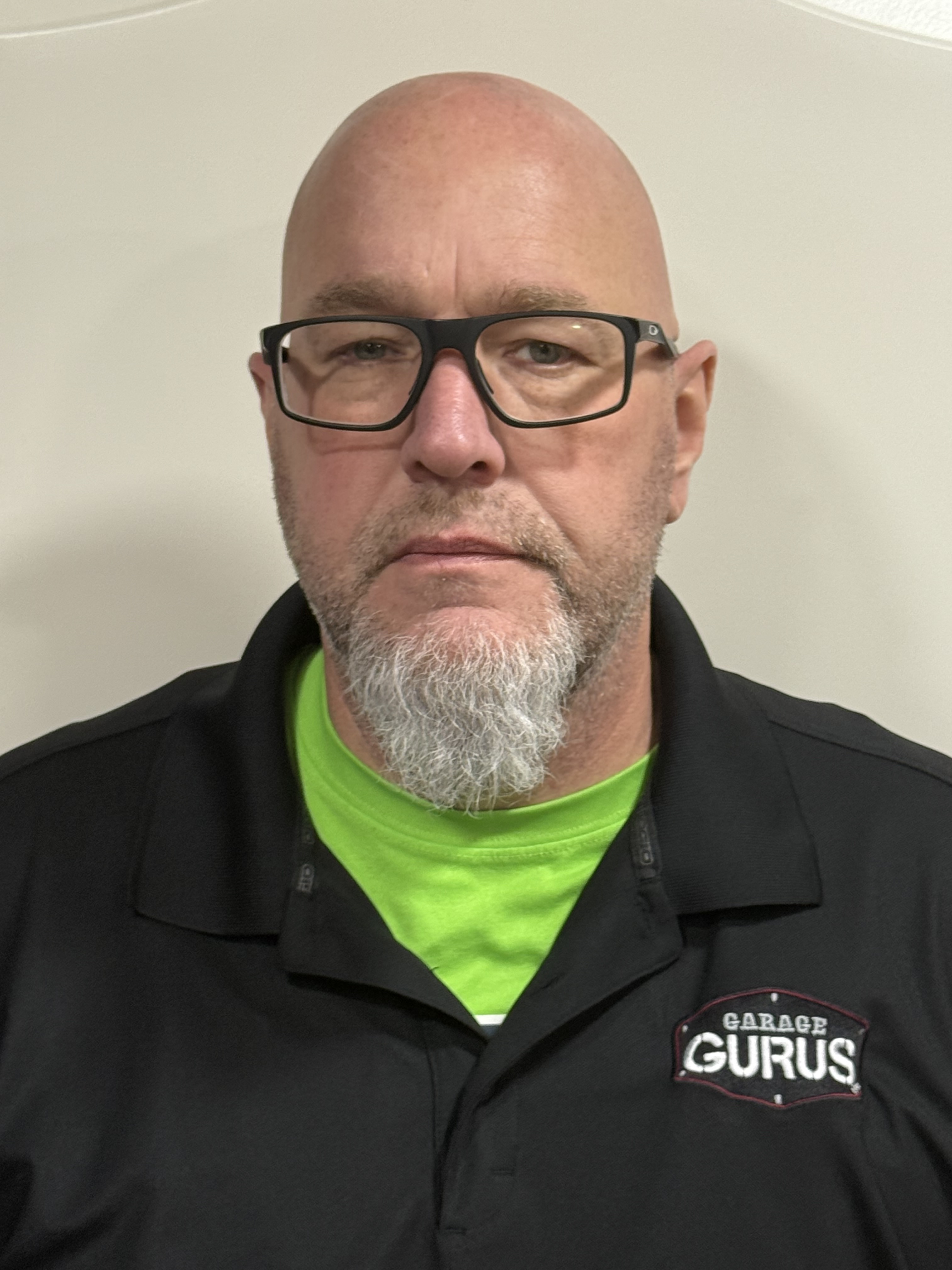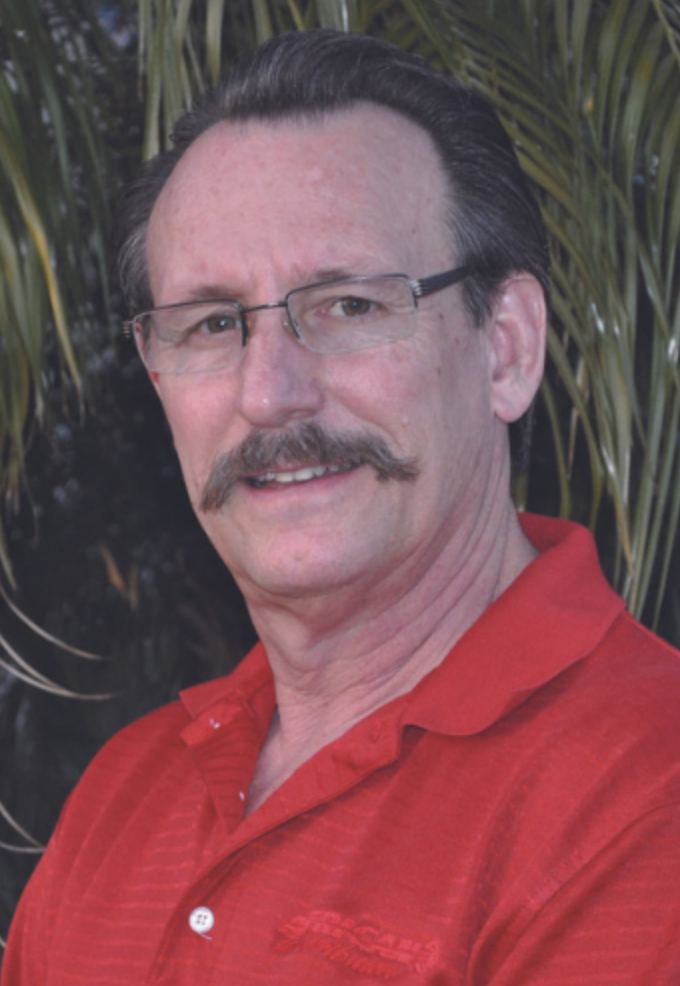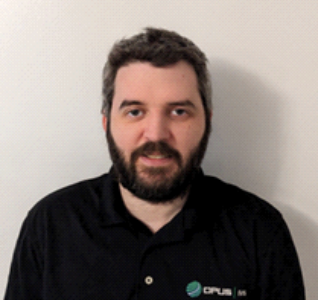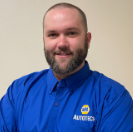We have some of the industry's leading trainers lined up for ATE Training Expo Seattle 2026 !
From mechanical technical classes to business management and sales classes, ATE has it covered!
*Management Training classes are labeled below in ORANGE. The top management trainers in the automotive industry will be presenting classes ranging in a vast array of topics!
*Mechanical & Technical Training classes are labeled below in Blue. The top management trainers in the automotive industry will be presenting classes ranging in a vast array of topics!
Looking for a printable version of the upcoming expo training schedule? Download the Training Schedule by clicking here.
Click each class title to display or hide more information about each class.
Friday Morning
Presenting Preventive Maintenance Services with Value
This high impact workshop reshapes how Service Advisors present preventive maintenance by combining vehicle science with customer psychology. Advisors learn how to confidently explain why services matter, connect value to real vehicle performance, and turn everyday maintenance conversations into trust based recommendations that benefit both the customer and the shop.By the end of the session, Advisors leave with a practical, repeatable approach to presenting preventive maintenance that feels authentic and professional, not sales driven. The focus is on consistency, clarity, and long term relationship building rather than one time transactions.Key takeaways includeCommunicating value over price using proven trust based language
Using maintenance data and predictability to justify services clearly
Presenting canned jobs confidently for consistency and profitability
Shifting from transactional selling to relationship driven advising
Speed of Service: Time is Crucial!
Time isn’t just a metric. It’s the make-or-break factor in how your shop is judged. Today’s guests expect quick callbacks, same-day updates, and a workflow that doesn’t keep them waiting. They aren’t comparing you to the shop down the street. They’re comparing you to Amazon, DoorDash, and every other service that runs like clockwork. If your processes aren’t keeping up, your reputation and revenue are taking the hit.
This course dives into the systems and habits that slow shops down. From scheduling and workflow to parts, communication, and leadership, you'll uncover what’s stealing your time and how to take it back. You’ll explore where breakdowns happen, how to prevent them, and what it takes to build momentum that lasts. Learn how to tighten up operations without sacrificing quality or culture. These are real strategies you can take back and implement immediately, changes your team will feel and your customers will notice.
Presented by Bill Haas of Auto Ignite Management, a seasoned business coach and trusted industry voice, this course delivers clear steps and a fresh perspective to help you speed up the right way. Bill brings decades of experience working with independent shops across the country, helping them improve productivity, increase customer satisfaction, and drive long-term growth.
In this session, you’ll learn how to:
- Identify the hidden time-wasters slowing your shop down
- Build a workflow that supports speed without sacrificing quality
- Improve parts acquisition and reduce downtime
- Create scheduling systems that set the day up for success
- Streamline internal communication between techs, advisors, and management
- Set clear expectations that keep the team focused and aligned
- Use speed as a trust-building tool for stronger customer relationships
- Turn time efficiency into a consistent profit driver
- Lead with intention, not urgency
This isn’t about rushing. It’s about refining. It’s about working smarter and turning efficiency into a competitive edge. If time is money, it’s time to get serious. Because when every minute counts, the best shops don’t just move faster, they move with purpose.
The Inspiring Leader, Unlock Your Team
Behind every great team is an inspiring leader—someone who doesn’t just manage tasks, but ignites performance, trust, and growth. In this game-changing course, Cecil Bullard pulls back the curtain on what it really takes to lead people well. Whether you're a Shop Owner, General Manager, or Advisor, this class is your step-by-step playbook to becoming the kind of leader your team wants to follow.You'll learn to lead not just with authority, but with purpose, empathy, and vision. Discover how to break the cycle of blame, silence excuses, and build an unshakable culture of ownership and achievement.
What You’ll Learn:
- The 6 Stages of Leadership Evolution: Understand the progressive path to powerful leadership—and where you are on it
- The 4 Stages of Building Trust: Cultivate a culture of confidence and cohesion
- 6 Proven Ways to Show You Care: Foster loyalty and connection that transforms teams
- 10 Communication Strategies: Improve clarity, eliminate confusion, and elevate results
- How to Create High-Performing Teams: Align individuals to a shared vision of excellence
- Secrets to Conflict Resolution: Turn tension into opportunity
- How to Eliminate Excuses and Inspire Accountability: Shift your culture from reactive to proactive
- The Magic of Avoiding Blame: Spot unproductive patterns and redirect energy toward growth
- How to Improve Self-Esteem in Your Team: Build people up so they show up fully
The Leadership Snapshot: Influence, People Skills & Emotional Intelligence in the Shop
Let’s face it—running a shop is one of the hardest leadership jobs out there. You're juggling parts delays, tech drama, customer expectations, and a dozen other fires… all while trying to grow your business. But here’s the truth: your shop will only grow as far as your leadership does.
The Leadership Snapshot is a dynamic, hands-on workshop designed to help shop owners and managers master the people side of leadership. We’ll cut through the noise and focus on what really matters—understanding yourself, connecting with your team, and leading with purpose.Through live assessments, guided breakout groups, and practical tools, you’ll uncover how your natural wiring affects your leadership, where your influence is helping or hurting, and how emotional intelligence can transform how your team responds to you. You’ll walk away with a personalized Leadership Snapshot and a 90-day plan to elevate your leadership and move your shop forward.
If you’re tired of putting out the same fires, struggling to get buy-in from your team, or wondering why your top tech just quit… this course is for you.
You’ll Learn How To:• Identify your natural leadership wiring and how it shows up on the shop floor• Strengthen emotional intelligence and build deeper trust with your team• Increase your influence without micromanaging or powering up• Uncover blind spots in how others experience your leadership• Build a clear 90-day plan to become the leader your shop truly needs
Who Should Attend:• Shop owners, GMs, and service managers who want to grow their leadership• Leaders who want to improve retention, accountability, and team culture• Anyone ready to lead more effectively—without burning out or powering through
Air Conditioning Diagnosis & Service
There is a new way to cool the automotive industry. And a new set of rules to follow for a successful repair. Review 134a descent into refrigerant history while 1234yf is now in all makes-models as of September 2020. And a quick update on the status of R744. This course will instruct the technician on:
New lubricationsUpdated service-diagnostic procedures for 1234yfScan tool bi-directional controlsOnboard module software operationVariable displacement compressor issues and repairsAlso, heat exchange and hybrid climate control are explored and dissected for easy consumption in this three-hour course.
Battery, Starting and Charging Systems Diagnostics
This workshop is designed for technicians who have a basic understanding of electrical theory and are ready to put it to use. We begin with highlighting information on battery testing and battery replacement. We will discuss proper battery testing methods and what may need to be done during a replacement. Starting systems have become more efficient, and the circuits that control them include complex security protocols. The methods for validating faults within a starter circuit still revolve around the understanding of basic electricity. Good practices are critical to not overlooking an obvious fault. We will cover how to diagnose a ‘no start’ condition and the quickest way to pinpoint the problem. Charging system controls have advanced, and many manufacturers have specific charging system strategies that are used to aid in longer battery life and increased economy. We discuss the different variations of ‘smart charging systems’ and what testing methods you need to employ to avoid replacing a costly alternator that was not the root of the problem. In-bay vehicle demonstrations are part of this workshop.
After completing this workshop, the student will have the knowledge to:
• Diagnose common battery, starting, and charging issues using the latest diagnostic equipment• Understand the different automotive battery types and testing methods• Measure charging system output and validate proper PCM control• Use system wiring schematics to aid in diagnosing charging system faults
Other Speakers

Cam & Crank Sensor Diagnostics
In-depth review of cam & crank sensor operation, diagnostics, and a walkthrough on cam & crank-related failures in domestic & import applications with case studies.
Learning Objectives:
Apply effective diagnostic strategies to troubleshoot cam and crank sensors that can increase the shop’s bottom line by reducing time. Today’s technicians are required to stay up to date on the latest automotive technologies and diagnostic strategies.
Key Points Covered:
- In-depth review of cam and crank sensor technology types.
- A walkthrough of various testing procedures for an effective diagnosis.
- Examine cam and crank sensor correction codes and failures.
- Share domestic and import case studies to aid in the understanding of diagnostics.
- Use lab scope testing and examine waveforms patterns to troubleshoot.
- A focus on developing diagnostic strategies based on root cause analysis to reduce comebacks by fixing it right the first time.
Class Requirements:
This is a semi-advanced technical training class. Prior knowledge and usage of lab scopesis highly recommended.
Audience Type:
- This technical topic is geared for the average B+ technician that has a basic understanding of using a scope and reading waveforms.
- A refresher for the A technician that has the basic knowledge of scope diagnostics.
While this is a semi-advance training for select audience types, NGK is dedicated to meet the learning needs of all skill levels.
Essential Scope Tests
This course provides the confidence to take the fear and frustration out of using your oscilloscope. Modern vehicles provide us with multiple communication networks, countless sensors, solenoids, and actuators. Not only do we need a way to test the components themselves, but we also need trusted tests to verify the controllers that monitor and actuate these components.
You will learn essential operations of your Oscilloscope, including set up, signal analysis, common waveforms and tests that can be used on every vehicle you work on. Quick tests for no starts, driveability concerns, communication networks, electric motors, solenoids, actuators, and sensors will also be covered.
This course will prepare you to take your scope to the fender and prove failures without the need for intrusive teardown, lost time, and labor.
- Signal acquisition
- Current charging
- Pressure testing
- Voltage drop/loading circuits
- Starting and charging system testing
Industry Standard Tire Repair Certification Course
This comprehensive hands-on training covers industry-standard tire repair procedures for passenger, light truck, and commercial truck/bus tires. Participants will learn proper inspection techniques, injury assessment, and the two approved repair methods: combination patch/plug units and two-piece repair systems. The course includes specialized training on noise reduction tire repairs, reinforced shoulder repair (RSR) techniques, and critical safety protocols. Students will gain proficiency in injury channel preparation, buffing, cementing, repair unit selection and installation, with emphasis on TRMG industry standards. Upon completion, participants will understand when repairs are acceptable versus non-repairable, proper equipment usage (including speed limitations for buffers and drills), and the importance of complete internal inspections. This certification ensures technicians can perform permanent, safe tire repairs that meet manufacturer specifications and industry best practices.
Logical Diagnostic Decision for Drivability Dilemmas
This is a critical thinking or logical approach class to address many of the issues that face techs every day; working on systems that are new to them or that they have little or no experience diagnosing. The course is a mix of critical thinking, theory, diagnostic testing methods, tooling and real-world case studies.
Four areas will be addressed: mechanical testing, fuel trim diagnostics, ignition testing and network communication issues.
Graphing scan data, archiving data and other useful diagnostic software will be discussed.
Lots of real world, not so forward case studies will be used to illustrate these processes and techniques. See how you can diagnose each type of problem with basic tools and high-tech tools.Learn how to figure out what to do next in your diagnostic process. See what your results should be and where to go next.Examine a quick review of the “Flatrater” test drive and how to gather information.
Mercedes Chassis Control Systems Airmatic, ABC, & Magic Body Control
- Level sensing troubleshooting & calibration- Damping & electronic controls- Leak diagnostics- Common failures & repairs- Troubleshooting tips & tricks
The Nuts & Bolts of Fixing the High Volts Part 1
A Master Class on EV and Hybrid High Voltage System Diagnostic RepairA comprehensive, full day class on EV and Hybrid Vehicle Technology. We cover everything from high-voltage safety, basic diagnosis and high voltage system repairs to more advanced electronic controls like resolver circuits and other EV and HV diagnosis from a technician’s perspective.
This all-day class is designed to provide any competent technician (that already has a good, fundamental electrical understanding) with all of the Safety, PPE Testing, Hybrid-EV Theory and of course Hands-On Testing Techniques which are covered.
This class looks at how to safely understand and work on and perform basic diagnostic service on Hybrid and all-electric vehicles (EV, BEV) in general.
Includes overview of theory on function and control of motor generators, power split and planetary gear function high voltage and battery service and more.
This is a VERY comprehensive class for anyone entering or currently working on high voltage vehicles, EVs and Hybrids. During this 8-hour class, we use real life diagnostic cases and scenarios to back up the theory taught, don’t miss this class with Adam and Gary!
Other Speakers

Friday Lunch
Meal - Fri Lunch - Lunch Speaker
Culture is not what an organization says it values, it is what people actually do. This keynote examines how culture is formed, how it can be accurately identified, and why most attempts to “change culture” fail. Participants will explore how to define culture in practical terms, where to look to determine the true culture of a team or organization, and how language, behavior, and standards reinforce it daily. The session will also address how culture is transformed, not through statements or initiatives. The goal is to move culture from an abstract concept to something observable, measurable, and influenceable
Meal - Fri Lunch - NO Keynote
Friday Afternoon
Cool Heads, Clear Shop
Cool Heads, Clear Shops is a practical, no-fluff workshop built to help shop leaders and front-line staff navigate real-life conflict—and come out stronger, not scarred.You’ll learn how to:
- De-escalate tense situations with customers and coworkers
- Handle angry, emotional, or unreasonable customers without losing your cool
- Give tough feedback to teammates without drama
- Create a culture where issues are addressed early—not ignored
- Avoid blame games and focus on solutions
- Lead with empathy and accountability when things go sideways
- Whether it’s shop-floor friction or front-desk chaos, this workshop will give you the tools to stay in control, protect your team culture, and keep your shop running smoothly.
- What You’ll Walk Away With:
- A conflict resolution script framework for tough conversations
- Step-by-step methods for calming heated customers (and keeping the sale)
- Communication tools to turn problems into progress
- Real shop scenarios and “what to say when…” cheat sheets
- A conflict response playbook for your whole team to use
Financial Strategies 2.0
Strong financial strategies are the foundation of a thriving business. This course goes beyond theory, providing real-world, actionable insights that will transform the way you approach financial decision-making. Through engaging case studies and simulations, you will learn how to make data-driven choices that fuel growth and profitability.
What You’ll Gain:
- Proven methods for forecasting sales with confidence
- Strategies to build and manage effective budgets
- Pricing techniques that maximize profitability
- A clear understanding of overhead and breakeven points
This is not just another financial course, it’s a must-attend session for business owners, managers, and service adsvisors who want to take charge of their financial future. Walk away with the tools and knowledge to drive success, increase profitability, and build the business you’ve always envisioned.
Marketing for Today
Find out what the best shops are doing today that are filling their bays with all the right customers. Digital Marketing, Website and SEO, Google and Yelp as well as Focused Marketing are all being used today to drive business and bring in the best customers: find out how the most successful marketers in the Automotive Service Industry are using these methods to increase their business and drive profits. If they can do it, you can too. This is the future for the successful shop owner and those that don’t learn new methods will struggle, wither and likely die. Create a Marketing Budget and work on a Personalized Marketing Plan for your business.
Workflow Mastery for Service Advisors: Stay in Control, Reduce Stress, Increase Throughput
Chaos in the front office costs time, money, and customer trust. This course equips service advisors with a simple, powerful workflow management system that keeps the day organized, the team aligned, and the customer informed. Advisors will learn how to control drop-offs, manage technician communication, schedule effectively, pre-sell work, and build predictable follow-up routines. We’ll also cover how to use AI and automation tools to reduce manual tasks and prevent bottlenecks. Advisors leave with a clear workflow blueprint they can implement the very next day to improve car count, cycle time, and customer satisfaction.
4WD Systems: Testing & Diagnostics
This class covers conventional style AWD/4WD vehicles– Vehicles equipped with a transfer case and a front driveline
Discuss theory of operation and diagnostic routinesIllustrate the sequence of events to obtain 4WD operationExplore vibration analysisExplain system identification and component testingIdentify common failures
Air-Fuel Ratio Sensor Diagnostics
Advanced diagnostics providing an overview of engine management systems to flag air-fuel ratio sensor DTCs. Effectively troubleshoot domestic & import vehicles.
Learning Objectives:
Apply effective diagnostic strategies when troubleshooting air fuel ratio sensors. This can increase the shop’s bottom line by reducing diagnostic time. It’s beneficial for today’s technicians to stay up-to-date on the various diagnostic strategies around the various A/F and oxygen sensor-based systems.
Key Points Covered:
- In-depth review of troubleshooting A/F sensor technology types.
- A walkthrough of various testing procedures for an effective diagnosis.
- Examine Toyota, Nissan, GM and Ford codes and failures.
- Share domestic and/or import case studies to aid in the understanding.
- Using OE scanner functional testing and examining A/F data pids to troubleshoot.
Audience Type:
- This technical topic is geared for the average B+ technician that has a basic understanding of using a scope and reading waveforms.
- A refresher for the A technician that has the basic knowledge of scope diagnostics.
While this is a semi-advance training for select audience types, NGK is dedicated to meet the learning needs of all skill levels.
All About ADAS Calibration
In this session, static and dynamic calibration steps will be discussed and reviewed for all three major vehicle types: Asian, Domestic, and Euro will be reviewed. This includes environmental and prerequisite requirements for performing ADAS calibrations and steps for verifying that the vehicles were calibrated per OEM specification.
Diagnosing Modern Valve Actuation Systems
In recent years, there have been significant changes in valve actuation systems. Variable valve timing has been used by manufacturers for over a decade, but problems can still prove to be difficult to diagnose. Variable lift, commonly used by Honda for years, is now being used by other manufacturers and poses a diagnostic issue for technicians. Displacement on-demand systems have been embraced by more manufacturers and can bring diagnostic challenges as well.
The goal of this class is to prepare the aftermarket technician to be successful in troubleshooting faults with variable cam timing, variable cam lift, and variable displacement systems. Technicians will learn how to identify these systems, understand and test their operation, and accurately diagnose problems. Technicians will also learn how the MultiAir system works and how to troubleshoot faults.After completing this class, a technician will be able to:
- Understand variable valve timing operation
- Diagnose variable valve timing faults accurately
- Identify the components and their functions
- Understand variable valve lift operation and their variations
- Understand variable cylinder displacement operation
Making Sense of Sensors
With vehicle technologies and components continuously expanding, there are more sensorsacross the average vehicle platform than ever before. Modules have more to monitor andcontrol to ensure safe and efficient vehicle operation. This course will cover the purpose,operation, and testing procedures for a multitude of sensing components used today and thefailure strategies used when a fault occurs.
Students will be instructed on proper and efficient choice and application of tooling for sensorrelated diagnostics and how to understand the results of testing. Understanding the differencebetween a faulty sensor and a good sensor is impossible without these skills. Sensor testing is still a challenging subject for many technicians around the world, but this course is aimed at making the topic easier to understand.
- Theory and operation
- Circuit design
- Circuit testing
- Necessary tooling
- Various sensor types
- Circuit faults and strategies
- Pull-up and Pull-down sensors
- Switches and sensors relationship
- Shorts to power vs. Shorts to ground
- Voltage vs. Current regulation
- Effects of magnetism
o How many different sensor types are there?o Will unplugging a sensor tell me enough to know if it’s good or bad?o Can a sensor still be good even if a module sets a fault code for it?o Can I just bench test it with a multimeter?
Mercedes Diesel Engines & Emission Systems OM642 & OM651
- Fuel system operation, troubleshooting, & common failures- Turbocharger & boost control system operation & troubleshooting- EGR operation, troubleshooting & common failures- Exhaust aftertreatment systems
Push Button Start & Smart Key Access
This clinic enhances the professional technician's skills in push-button start, smart keys, and start/stop systems. All of these systems are integrated and can impact one another. This course will discuss tricks in navigating service information to find necessary information for diagnosing a 'no-start' or no 'power up' condition. We will highlight various methods to allow scan tool communication with relevant modules in case of a dead fob or a failed start button. Wiring schematic information is highlighted throughout to help you understand diagnostic strategies. We will review communication networks and security gateways and discuss all system checksnecessary to power start and run the vehicle.
After completing this seminar, the student will have the knowledge to:
- Source wiring schematics relevant to vehicle starting systems using smart keys
- Identify root causes for a vehicle ‘no-start’ or ‘no power up’ condition
- Understand the hardware and electrical circuit control for start-stop systems
- Analyze related electronic systems that interact with the push button start system
- Understand the role the security system plays in starting the vehicle
Other Speakers

The Nuts & Bolts of Fixing the High Volts Part 2
A comprehensive, full day class on EV and Hybrid Vehicle Technology. We cover everything from high-voltage safety, basic diagnosis and high voltage system repairs to more advanced electronic controls like resolver circuits and other EV and HV diagnosis from a technician’s perspective.
This all-day class is designed to provide any competent technician (that already has a good, fundamental electrical understanding) with all of the Safety, PPE Testing, Hybrid-EV Theory and of course Hands-On Testing Techniques which are covered.
This class looks at how to safely understand and work on and perform basic diagnostic service on Hybrid and all-electric vehicles (EV, BEV) in general.
Includes overview of theory on function and control of motor generators, power split and planetary gear function, high voltage and battery service and more.
This is a VERY comprehensive class for anyone entering or currently working on high voltage vehicles, EVs and Hybrids. During this 8-hour class, we use real life diagnostic cases and scenarios to back up the theory taught, don’t miss this class with Adam and Gary!
Other Speakers

Transmission Diagnostics for Non-Transmission Techs
Transmissions have been controlled by computers for a long time. As a result, transmission issues can be electrical or hydraulic/mechanical in nature. When a vehicle with a transmission issue rolls into the shop, it is often “shipped” to a transmission-specific facility. Why? A perfectly capable technician, who can accurately diagnose an engine issue could tackle a transmission issue. Why lose the customer? This course outlines a logical process for attacking transmission failures. Using tools and techniques that drivability technicians already possess. We will discuss how to draw the line between an electrical problem or an internal transmission issue. Basic knowledge of automatic transmissions is a plus, but this course is geared towards non-transmission technicians.
Educators Roundtable - Everyone is Welcome!
Educators Roundtable
Please join us for the annual “Educator’s Roundtable” meeting where thoughts and ideas can be shared amongst automotive/diesel instructors, shop owners, managers, and technicians. Some topics will include general updates, what’s new with the ASE Education Foundation (formerly NATEF), and other topics that potentially impact the transportation repair industry. This session also provides an opportunity for shops to connect with automotive/diesel programs in their local area.
Friday Night Expo
Visit the Expo and see all of our great exhibitors from 4:30 pm to 7:00 pm in the Doubletree Hilton Grand Ballroom
Saturday Breakfast
Meal - Sat Breakfast
The Independent Automotive Service industry is teetering at the edge of a radical shift... Our Baby Boomer owners have begun to retire in great numbers, creating one massive tsunami of change. Did you realize that an estimated 67% or more of all 235,000 shops in the U.S. are Boomer-owned? Aged 61-75 this year, Boomers are moving as a block towards the door, and the disruption to all of us will be unprecedented.
Whether you're an owner, shop manager, service advisor or master technician, you need to understand what will happen to us all. How can you make the most of these unavoidable changes? What will our industry and the individual service companies evolve to look like over the next decade? What can you begin doing now, to thrive in the coming, opportunity-rich environment?
This lunchtime keynote discussion will delve into:
- The Boomer-retirement phenomena, and the staggering implications we will all face in this unfolding future
- How these changes are like tantalizing bait to the Private Equity investment community... the sharks smell blood in our water
- What opportunities these sweeping changes lay before all industry specialists - owners, key leaders and team members alike
- How to prepare your company, team and customers to become a Top-1% player in your market
- What you and your team should begin doing the minute you get home from this conference
- This 30-minute lunchtime keynote will leave you charged... You won't want to miss it!
Saturday Morning
AI Powered Selling for Service Advisors: Work Smarter, Sell More, Stress Less
AI is no longer the future—it’s the competitive advantage being used by today’s best service advisors. This session teaches advisors how to use practical, shop-ready AI tools to increase sales, speed up workflow, improve communication, and deliver a better customer experience. Advisors will learn how to use AI to create value-based word tracks, generate clearer digital inspection explanations, create customer-friendly analogies, and overcome common objections. Participants will leave with ready-to-use AI prompts, a repeatable sales workflow, and the confidence to use AI as their personal performance multiplier.
Other Speakers

Culture: What You Don’t Address Becomes Your Culture
Every organization has a culture, whether it is intentionally designed or silently developed. The unspoken habits, small compromises, and unchecked behaviors are already telling the story of your business. This interactive half-day seminar pulls back the tablecloth and exposes what is really happening under the table, where culture is truly defined. Through guided reflection, practical exercises, and honest dialogue, participants will uncover the hidden norms shaping their teams and learn how personal leadership directly determines collective culture. You will walk away with clarity, tools, and accountability to align what you say you value with how you actually show up.
You Will Discover How To:
• Identify the unspoken rules, stories, and habits driving your current culture.• Recognize how your communication, consistency, and presence define the environment around you.• Confront the behaviors and blind spots you have been tolerating that quietly shape “the way things are done.”• Replace default culture with intentional leadership practices that reflect your highest values.• Create daily alignment between personal integrity and organizational identity.
Key Takeaway:
Culture is not written in your handbook; it is revealed in your habits. What you do not address becomes your culture. This seminar gives you the insight, language, and leadership framework to start changing that today.
How Poor Inspections Kill Maintenance Sales
This course breaks down the real reason most shops struggle to sell maintenance: the inspection process is inconsistent, incomplete, or rushed. When inspections miss key items, advisors lose opportunities, customers lose trust, and the shop loses revenue.
You’ll learn how to recognize the weak points in your current inspection workflow, how to communicate more effectively with technicians, and how to turn accurate inspections into confident, benefit-based maintenance sales. We also cover how to structure digital inspections, how to prioritize findings, and how to present them in a way that customers actually understand and say yes to.
Whether you’re an advisor trying to raise your closing rate or a tech wanting to improve your inspection game, this class shows you how fixing the inspection process instantly improves maintenance sales, customer satisfaction, and shop performance
Mastering Challenging Situations
Led by experienced instructor Mark Seawell, "Navigating Challenging Situations" provides shop owners, managers, and service advisors in the automotive repair industry with the essential skills and strategies to address and resolve conflicts before they escalate. From handling upset customers to managing disputes with vendors and fostering positive relationships among co-workers, this workshop equips participants with the finesse and confidence needed to navigate challenging situations with ease.Key Topics Include:
- Wowing Upset Customers: Techniques for de-escalating tense situations, empathizing with customers, and finding mutually beneficial resolutions.- Navigating Tricky Situations: Developing proactive approaches to identify and address potential conflicts before they escalate.- Handling Vendor Disputes: Strategies for effectively communicating with vendors, resolving disputes, and maintaining productive business relationships.- Co-workers Coming Together: Building teamwork and collaboration among co-workers to foster a positive and supportive work environment.- Advisor Training: Enhancing communication skills and conflict resolution techniques to improve interactions with customers and colleagues.- Shop Management Training: Equipping managers with the leadership skills necessary to address and resolve conflicts within the repair facility.
Certification:Upon completion of the workshop, participants will receive a certificate acknowledging their proficiency in conflict resolution and their commitment to fostering a positive work environment in the automotive repair industry.Join us and discover how to transform challenging situations into opportunities for growth and collaboration in your repair facility!
Developing Better Diagnostic Judgement & Critical Thinking
Sharpen your instincts and elevate your accuracy with Developing Better Diagnostic Judgment and Critical Thinking— a powerful, real world course designed for automotive professionals who are ready to move beyond parts-swapping and guesswork. The class begins by helping form the proper mindset and attitude towards the challenges encountered everyday. The class then guides you through a structured, repeatable diagnostic process rooted in the scientific method, critical thinking, and real-world logic. You’ll learn how to leverage tools like scan data, oscilloscopes, and thermal imaging while applying methods like “triangulating faults” and analyzing delta to make confident, data-driven decisions. Packed with relatable case studies, varied testing strategies, and a mindset shift toward process ownership and accountability, this course delivers the practical knowledge and refined judgment every technician needs to solve complex problems and build long-term trust with customers.
Diagnosing Mass Air Flow/Volumetric Efficiency Issues
The Internal Combustion Engine (ICE) is basically no more than a glorified air pump that generates kinetic energy to propel a vehicle. The more ICE design/developments have changed, the air pump analogy remains somewhat of a constant. The ICE has to be able inhale/exhale properly and make accurate measurements of the air coming in and exhaust gases going out are still a crucial part of it. This class will examine different types of air measure systems for fuel calculations, their failures and how to go about accurately diagnosing them. Vacuum leaks, “pirate air” leaks, as well as, intake and exhaust restrictions issues will be discussed. Moreover, a common-sense/logical approach to diagnosing them, backed up by real-world case studies, will be presented. Learn how to leverage technology that will aid techs in diagnosing VE issues.
Electric Power Steering: Operation & Testing
The primary goals of this course are to:
Provide an overview of electronic power steering (EPS) systems and components including failures, testing and common procedures
- Explain EPS assist motor operation and testing
- Discuss modern steering system updates and design changes
- Consider alignment changes
- Explore the latest steering system operation and testing procedures
Gasoline Direct Injection Systems
The demand for more efficient, more intelligent, and environmentally cleaner liquid-fueled spark ignition (SI) engines is a primary focus of today’s vehicle manufacturers. GDI SI (Spark Ignited) engines have overcome many limitations and are now commonplace. This workshop provides a comprehensive overview of GDI engines. Various engine operating modes (start-up injection, late injection, operating mode transition) are explored. An explanation of mixture preparation leading to the combustion process is outlined. An emphasis on operational strategies for homogenous and stratified charge fuel control is reviewed. Issues related to the direct injection of gasoline into the combustion chamber are highlighted. Fuel injection system requirements for optimal spray characteristics are discussed. Emission of pollutants, fuel economy, and effects of some key design and operating parameters are also covered.
After completing this workshop, the student will have the knowledge to:
• Describe the operating characteristics behind GDI engine operation• Analyze the important criteria leading up to maximum performance in GDI engines such as proper operation of the Fuel Delivery system• Explain injector spray and atomization requirements for successful GDI operation• Utilize service tools and techniques to properly disassemble and reassemble GDI fuel systems• Analyze important scan tool data parameters in verifying proper GDI engine performance• Interpret scope waveforms captured from fuel injectors and other fuel system components• Understand effects of key engine design and operating conditions on performance, combustion, and emission within GDI engines
Other Speakers

Industry Standard Tire Repair Certification Course
This comprehensive hands-on training covers industry-standard tire repair procedures for passenger, light truck, and commercial truck/bus tires. Participants will learn proper inspection techniques, injury assessment, and the two approved repair methods: combination patch/plug units and two-piece repair systems. The course includes specialized training on noise reduction tire repairs, reinforced shoulder repair (RSR) techniques, and critical safety protocols. Students will gain proficiency in injury channel preparation, buffing, cementing, repair unit selection and installation, with emphasis on TRMG industry standards. Upon completion, participants will understand when repairs are acceptable versus non-repairable, proper equipment usage (including speed limitations for buffers and drills), and the importance of complete internal inspections. This certification ensures technicians can perform permanent, safe tire repairs that meet manufacturer specifications and industry best practices.
Modern Air & Fuel Strategies & Diagnostics
When you think about the components of modern-day automotive air and fuel control systems, what is the first thing that comes to mind? Today’s vehicles are commonly equipped with turbochargers, direct fuel injection, variable valve timing, variable valve lift, wideband ratio sensor, etc., and the list goes on and on. So how do we make better sense of the operation strategies and develop a diagnostic plan for these modern challenges? It is time to enter a new level of technician skills since today’s vehicle technology changes have happened at such an accelerated rate. Whether we’re diagnosing an airflow management problem or a fuel control issue, we need to know why the engine controller is making the decisions that it is. If a controller is receiving false input data, then the output decisions are going to be incorrect as well. That can be extremely challenging today given that there is an abundant amount of data parameters compared to years before. Thinking outside of the box should become a new normal, and our goal is to encourage the technician to look at these modern-day systems through fresh lenses and come up with new ways to diagnose correctly by getting a better understanding of system operation. Some of the techniques will include:
- Validate airflow measurement and control systems
- Utilize wideband AFR on nearly any vehicle
- Fuel sample testing
- Introduce analyzing engine programming maps
- Scrutinize engine system inputs
- Fault code setting criteria usage
- More areas to use a pressure transducer
Modern air and fuel control systems today are more complicated than in years past, so we need to be able to detect when a controller has switched to running in a default. This course is intended to help and encourage today’s technicians to use every data parameter in their scan tool that is necessary when diagnosing either an airflow sensing/control problem or a fuel system concern. This course is intended for A and B level technicians.
Steering & Suspension Inspection Practices
Tire wear, pulling, wandering, etc, or even maintenance will send a vehicle to the alignment rack but what are we missing. Before it gets an alignment it should have a thorough inspection to make sure the alignment is going to perform as intended today and for miles to come. Instead of a quick shakedown how about having a process that is thorough, accurate and efficient? This training will discuss the different steering and suspension systems, why they need to be checked differently and how to properly perform the inspections. Develop a plan, be efficient and consistent while increasing your opportunities.
Wicked Diagnostic Routines - Chopping Down the Trouble Tree Chart
Tired of being led down the wrong path by factory flowcharts and parts-swapping guesses? OEM “trouble trees” have misled us for years, causing wasted time and unnecessary parts replacement. This class is a smorgasbord of “wicked cool” diagnostic routines that go beyond the everyday. We’ll explore creative, efficient, and eye-opening methods that challenge the status quo and open your mind to what’s possible. Every routine covered in this class is designed to stretch your thinking, spark your imagination, and add new testing methods to your diagnostic arsenal to handle the stuff that doesn't follow the book. You won’t get a deep dive into any one system, but you will get a powerful intro to multiple high-impact concepts, with hands-on and virtual courses available for those ready to go further. Whether you’re just starting or already seasoned, this class will leave you thirsty for more. This isn’t a checklist of textbook tests. It’s a mindset shift, built around real-world techniques and the belief that the only limit is your imagination.
Saturday Lunch
Meal - Sat Lunch - Lunch Speaker
The keynote will touch on today's industry-wide technical challenges in the bay, how great techs get into big trouble fast in diagnostics and how to avoid diagnostic pitfalls with a daily approach strategy.
Other Speakers

Meal - Sat Lunch - NO Keynote
Saturday Afternoon
Customer Expectations & Level Setting
Led by expert instructor Ryan Daily, "Customer Expectation and Level Setting!" provides shop owners, managers, and service advisors in the automotive repair industry with invaluable strategies for confidently and effectively communicating and setting expectations with all personality types. Participants will learn the four personality types based on DISC profiles, they will be able to effectively diagnose each type quickly and adjust the way they communicate to better serve the customer.Key Topics Include:
- DISC Personality Types: Understanding your audience is crucial for successful communication.- Body Language and Speech: Identifying each of the four personality types will assist in understanding the best way to communicate clear expectations. - Talking the Same Language: Different personalities receive information differently, It is up to us to make sure we are heard and understood.- Under Promise and Over Deliver: In the Auto Repair Industry, we often fall short of our promises. Here we learn to cultivate a culture of understanding with our clients and co-workers.
Join us and discover how to overcome objections with finesse and close more sales with confidence in your repair facility!
Mastering the Art of Successful Customer Communication
What would you be willing to do in your business to be top-of-mind when your customer needs you? In this training you will learn how to communicate with specific personality types in ways that are super easy to execute.
Knowing your customers motivational mindset gives you the advantage of creating intentional copy & content that targets their particular perspectives and drives them to your shop. Learn the specific scripts for phone calls, emails, text messaging, and post-cards that speak to them on a deeper level.
Maximize Profits and Reputation: How Service Advisors Can Make or Break Your Business
Your Service Advisors are the face of your business and key to your shop's success. In today’s competitive automotive industry, their performance directly impacts your bottom line and reputation. Are they driving your business forward or holding it back?Maximize Profits and Reputation: How Service Advisors Can Make or Break Your Business is a transformative 4-hour course designed to help shop owners and managers understand the critical role of Service Advisors and leverage their skills for maximum impact.In this hands-on course, you’ll learn to:
● Boost Your Bottom Line: Increase profits through effective sales techniques and customer interactions.● Protect Your Reputation: Ensure Service Advisors represent your brand with excellence.● Control Shop Flow: Streamline operations and improve productivity.● Identify Key Performance Indicators: Track and improve your team’s performance with the right metrics.● Train for Success: Hire, train, and retain top-performing Service Advisors who drive your business forward.
We’ll get you on the path to transform your Service Advisors into powerful assets that impact both your profitability and reputation. This course focuses on why these steps matter and how to implement them effectively.
Join us to maximize profits and build a strong, trusted reputation through Service Advisor excellence.
Tech Power Utilization for Your Whole Team
Equip shop owners, managers, lead techs/shop foreman, and lead service advisors with apractical, human-centered forecasting method that converts the real “tech power” in your shop—skills, motivation, and strengths—into reliable weekly revenue and capacity forecasts.
Outcomes (What participants will leave with)
• A simple forecasting tool based on real hours, real people, real strengths.• A shared language for Tech Power Utilization (TPU) and the human factors that produce.• An implementation plan and a printable KPI accountability sheet producing .5-1.0 more per tech per day.• Techs get the shop AND themselves paid another .5-1.0 per day. 1.0 at a $185 labor rate, that’s a $46,805 per-tech annual shop labor sales increase. Tech's annual gain is $12,000+!• Tech Time Target, TTT, where the techs' real focus produces more• Two leadership facilitation tools: a daily pulse (2-questions) and a 5-minute huddle script that improves the forecast without adding meetings.• Understanding how the three labor types impact your appointment scheduler.
BMW Suspension System Air & Electronic Ride Control
- E70 Electronic Height Control (EHC) recap
- F Series EHC overview, strategy, & testing
- G Series Vertical Dynamics Platform (VDP) overview, strategy, & testing
- G05 EHC & VDP introduction
EVAP Diagnostics Beyond the Gas Cap
Modern EVAP (Evaporative Emission Control) systems demand more than simply replacing a gas cap or utilizing a smoke machine for testing. This specialized clinic is designed to elevate technicians' skills by moving them beyond superficial diagnostics and into a comprehensive, strategic evaluation of the entire system. Participants will gain insights into analyzing scan data to identify potential issues, understanding flow logic to ensure proper functioning, and examining component behavior to pinpoint where failures may occur. By integrating these elements into their diagnostic approach, technicians will be better equipped to accurately diagnose evaporative emission problems, ultimately leading to more efficient repairs and improved vehicle performance.
After completing this seminar, the student will have the knowledge to:
• Identify the type of enhanced EVAP system being diagnosed• Use the OBD II monitors to aid in diagnosis and testing• Utilize scan tool bi-directional controls for testing• Test for small and large EVAP leaks using smoke tests• Determine the most effective and time saving ‘next step’ in the diagnostic process
Other Speakers

Network Nightmares: Solving Communication DTCs Quickly & Effectively
This class is designed to provide the attendee with unique diagnostic strategy and new approaches toward network and communication issues. In this class, we share the road maps that we have learned and developed over many years of study and application.
Topics will include:
- Construction and Theory of Operation of the Various Sections of CAN we Analyze in the Physical Layer
- Single and dual wire, ethernet, fiber optic, wireless and the rules that make them work.
- Network “wake-up” strategies and wakeup waveform analysis.
- How the protocol language actually means something to us in the waveform
- The terminated network bus lines and diagnosing this quickly and accurately
Learn the Physical Rules that Makes any Network Function, Waveform Interpretation and Analysis:
- Vehicle communications networks are simply radios, broadcasting and receiving via a balanced antenna (The twisted pair bus lines). Learn how viewing and testing
- communications faults by segregating the circuit into transceiver and antenna can help demystify the technology and help you target your next step accurately.
- Blend the theory parts (Predictable and provable by Physical Laws) with actual waveform analysis and connect the dots in your approach and on-car strategy for network
- diagnostics.
- Terminated bus lines and the CAN node’s operation are covered and how this directly relates to useful interpretation of your scope waveform analysis. Knowledge is power.
- Waveform interpretation, serial decoding, math channels, XY views, masks, alarms and more
- Each topic will be backed up with real case studies to re-enforce the strategies used.
- Network topology designs and their operational strategies
- Learn unique application of scan tools and lab scope together, our diagnostic “tips ‘n tricks
If you want to UP your diagnostic game, DON’T MISS THIS CLASS!
Perfecting your Alignment Practices
Modern alignment equipment has made it much faster to perform alignments but are you aware of how the equipment measures the angles and how it relies on the user to perform certain actions in the correct manner. The equipment is very accurate but that accuracy is dependent on proper procedures. We will discuss the steps taken during the alignment process and address ways to improve accuracy and efficiency. Make the most of your equipment, eliminate comebacks and get a level steering wheel every time.
Radar Ready! Diagnosing Advanced Drive Assistance Systems
ADAS (Automated Driver Assist Systems) are becoming common on today’s vehicles as we move closer to fully autonomous vehicles. These new systems will require that shop owners, technicians and service advisors educate themselves and their customers on how this technology works. In this course Delphi Technologies' technical trainers will cover;
• Overview of Lane Keep Assist, Lane Departure Warning, Blind Spot Monitor & AdaptiveCruise• Hardware overview (RADAR, LIDAR, smart cameras and ultrasonic sensors)• Camera / sensor aiming equipment, windshield and paint concerns, etc.• ABS, electronic throttle and E-steering interactions / customer concerns• Static and dynamic camera and radar sensor calibrations requirements and tips• Diagnostic tool data interpretations, service do’s and don’ts and case studies
T-Ninja Box: Foundational Module Cloning
This class provides a focused overview of using the Topdon T-Ninja Box for control module cloning. Students will learn hardware setup, workflow best practices, and real-world applications on popular vehicle platforms.
1. Basic Tool Functionality- Introduction to T-Ninja Box hardware and software interface.
- Overview of supported control modules (ECM, TCM, ETC).I
- Integration with Phoenix-series diagnostic tools.
- USB connection, communication setup, and update procedures.
- Using the Launchtech PC Adapter for expanded cloning functionality.
- Setup, driver installation, and communication comparison.
- Demonstration of cloning via Launchtech adapter connection.
- Expands coverage for advanced cloning applications.
- Required for certain ECM and TCM operations.
- Proper connection and setup tips.
- Safe method for connecting directly to transmission modules.
- Pinout identification, power, and grounding best practices.
- Demonstration: ZF and Honda 9HP bench connection setup.
- Understanding read/write structure: EEPROM, D-Flash, P-Flash.
- Workflow from data extraction to verification and restoration.
- 1:1 Cloning vs Non 1:1
- Use a stable power supply and quality USB cable.
- Perform multiple reads (v1/v2/v3) for data integrity.
- Validate files with a hex editor and maintain backups.
- Use OEM programming software when possible to validate module identity, software and firmware after cloning.
- Use HxD or Hexed.it to compare and verify clone data.
- Optional checksum and file validation tools.
- Organized file storage for future module recovery.
Live and guided case studies:
- Honda 9HP TCM – Transmission cloning and verification
- GM Global A ECM – Full data clone and variant check
- VW/Audi Bosch ECM & ZF DSG – Complete module cloning workflow
- BMW CAS Module – Data read/write and file verification
Focus: Accurate, reliable, and repeatable module cloning using professional-grade equipment and disciplined process control.
Tactical Diagnostic Series - Scan & Scope
Misdiagnosis and unnecessary parts replacements plague many shops and technicians. Eliminating these pitfalls to maximize diagnostic efficiency is the strategic focus of this class. A tactical approach to using your full arsenal of diagnostic equipment in concert, as conditions require, to quickly diagnose with 99.9% certainty, is the goal. This provides the diagnostic and repair efficiency that satisfies customers and makes you money.
Recommended for seasoned and aspiring diagnostic technicians.
- Capabilities of OEM scan tools
- Review the capabilities and limitations of aftermarket scan tools
- Realize the full capabilities of DSOs (Digital Storage Oscilloscopes)
- Discuss integration of scan tool and scope usage to clarify and validate diagnosis
o Is your scope being utilized as an everyday tool?o How do you realize the full potential of your scan tool and your scope?o What are the top 5 tests you can use to verify data?
Turbocharged Diagnostics with VE & Scan Data
This class starts with a quick review of scan data and volumetric efficiency on naturally aspirated engines and quickly moves on to diagnosing turbocharged applications using similar techniques. When testing MAF equipped vehicles, there is a definite difference in how fuel trims and VE behave. We will cover the theory and how to use these techniques for diagnosis. With a little bit of math, don’t worry… we have calculators for that, we can predict what VE should be for any given application or situation. These techniques will help us understand, and reinforce trust, in the multiple “LOAD” PIDs you may see in a data list. Fuel trims are also a very important piece of this puzzle. Case studies of actual good and broken vehicles will be used.
Educators Roundtable Day Two (Closed Session, Educators Only)
Educators Roundtable Day Two (Closed Session, Educators Only)
The ATE Seattle Educators Roundtable day two, is an interactive discussion designed exclusively for high school and post-secondary automotive and diesel instructors, with a focus on the business and operational side of automotive and diesel education. This session provides a space for educators to connect and discuss program structure, curriculum alignment with industry needs, equipment planning, and the day-to-day realities of running effective automotive and diesel education programs.
Participants will share insights on managing modern training environments, adapting to rapidly changing vehicle technologies, strengthening industry relationships, and preparing students for successful careers. This roundtable is centered on collaboration, shared experience, and practical strategies that support strong, relevant, and sustainable automotive and diesel education programs.
Shop Owner/Manager Roundtable - Everyone is Welcome!
Shop Owner/Managers Roundtable
Saturday Night Expo
Visit the Expo and see all of our great exhibitors from 4:30 pm to 7:00 pm in the Doubletree Hilton Grand Ballroom
Sunday Breakfast
Meal - Sun Breakfast
Sunday Morning
7-Step Sales Process: Building Trust, Clarity, and Confident Yeses
This class breaks down our proven 7-Step Sales Process used to create welcoming first impressions, reduce customer anxiety, and guide clear, confident decisions—without pressure or gimmicks.
We’ll walk through how to invite customers in the right way, uncover buying personalities through natural conversation, clearly explain what we’re doing and why, and present inspections and pricing with transparency and professionalism. You’ll learn how to sell the company, the value, and the service—in that order—while maintaining trust at every step.
- By the end of this course, you’ll know how to:
- Make every customer feel welcome (even when things don’t go perfectly)
- Communicate expectations clearly and reduce uncertainty
- Present inspections, pricing, and recommendations with confidence
- Close without overselling and deliver an experience worth returning for
- Cement the relationship through follow-up, reminders, and referrals
- This process isn’t about pushing repairs—it’s about clarity, consistency, and earning long-term trust.
Crystal Clear Communication for Your Team
Led by seasoned instructor Ryan Daily, "Crystal Clear Communication" delves into the indispensable skill of effective communication within the automotive repair shop. From fostering seamless interactions between customers and advisors to enhancing collaboration among technicians and managers, this workshop equips attendees with the tools and techniques to communicate with clarity and impact in every aspect of their work.
Key Topics Include:- Verbal, Non-Verbal, and Written Communication: Understanding the nuances of different communication channels and utilizing them effectively.- Effective Listening: Mastering the art of active listening to ensure clear understanding and facilitate meaningful connections.- Motivating Others Through Communication: Learning how to inspire and influence through persuasive communication techniques.- Communication Across Roles: Developing strategies for improved communication between customers and advisors, advisors and technicians, and among colleagues at all levels.- Advisor Training: Enhancing communication skills to better engage with customers and colleagues, ultimately driving sales and fostering positive relationships.- Management and Leadership Training: Equipping managers and owners with the tools to lead by example, communicate vision, and inspire their teams towards success.Join us and unlock the power of crystal clear communication to drive success in your repair facility!
Certification:Upon successful completion of the workshop, participants will receive a certificate recognizing their proficiency in effective communication within the automotive repair industry and their commitment to fostering a collaborative work environment.
From Start to Stay: Hiring with Intention
Hiring doesn’t need another playbook. It needs a reality check.This session is a deep dive into what it really takes to find, interview, and actually keep the right people on your team. You’ll learn how to write job ads that stand out without sounding desperate, ask interview questions that tell you what you actually need to know, and create a hiring experience that makes the right people feel like they’ve finally found the shop they’ve been looking for.
Led by Sara Fraser, VP of Auto Ignite Management, who interviews more techs and advisors in a month than some shops do in a lifetime. Which means she’s seen the red flags, the weird answers, the resume fiction, and she’s here to help you avoid hiring your next regret.This isn’t about manifesting the perfect team. It’s about building one with intention, the right tools, and a process that actually works. No more guesswork, recycled interview questions, or generic job ads that blend in with the noise. It’s time to rethink the way you hire because if your process hasn’t changed in years, it’s probably not working.
What You’ll Learn:
- What today’s workforce is really looking for (and what’s pushing them away)
- How to write job ads that stand out and speak to the right people
- Interviewing strategies that go deeper than “Are you a team player?”
- How to spot the difference between a solid fit and a walking red flag
- How your hiring process might be turning people off before they even apply
- How to show candidates they’re not just applying to a job, they’re joining something better
- This isn’t just another hiring class. It’s the one that will change the way you attract, interview, and connect with the people your shop really needs
Succession by Design
AbstractThere are approximately 4.6 million small businesses in America, employing 76% of the workforce, most being owned by the Baby Boomer generation readying for retirement. 70% of small companies will see their current owner depart in the next 20 years. Twenty years ago, only 30% of small companies survived to a 2 nd owner 20 years ago, yet today, just 15% survive, meaning 85% of existing small businesses will not survive the departure of the current owner. The stakes are enormous: Enterprise value; Lease Income; RE sale prospects and valuation; Employee income security and the effect on their families; New entrepreneur ambitions; Community vibrancy.
Since every business owner will sell their company, either by liquidation at auction or, more beneficially, via a well-considered succession plan, all attendees will find this session relevant, regardless of their age or time in their business. A Perpetual Business, by design, is ALWAYS ready for sale or expansion, supporting owner confidence to pounce on acquisition opportunities, and will command a premium sales price when it’s time to exit. They are more profitable, less demanding on personnel, and capable of supporting a flexible lifestyle that owner’s desire. Attaining this status is not a mystery, but it does require education, planning, and the commitment to see it through. We have the experience and resources to help with all three.
The ClassValue: Continuity: LegacyThe Perpetual Business - Succession by DesignI. The presentation is naturally quite interactive as I share information, thenvalidate understanding through questions/feedback from my audience. Thereare two participative exercises: Valuation of 2 companies; 3 case studies thatsmall groups can discuss and suggest solutions to their succession obstacles.
II. The wrap-up neatly summarizes all of the shared information, key objectives toattaining Perpetual Business status, and igniting action items.
AV RequirementsI will have the presentation on a memory stick for use with equipment you already have setup; otherwise, I can bring my computer
W.W.M.D - What Would Maylan Do?
The Art of Building Relationships, Selling Confidently & Growing Organically.Join me, Melissa “Birdie” Patterson, for a fun, engaging, and insightful class celebrating Maylan Newton’s timeless wisdom and impact on our industry. Whether you knew him personally or are just discovering his wisdom, this session is all about sharing stories, lessons, and real strategies inspired by his no-nonsense, relationship-driven approach - infused with the twisted sense ofhumor we all loved.
We’ll dive into classic Maylan anecdotes, famous "Maylan-isms," and interactive discussions as we tackle real-world shop challenges using "The Maylan Method." Throughout the session, we’ll ask, “What Would Maylan Do?” - applying his wisdom to leadership, attitude, and customer relationships. From “People don’t buy from businesses, they buy from people” to breaking downyour marketing with Maylan’s famous, “How do you eat an elephant? One bite at a time... with lots of BBQ sauce,” you’ll leave with actionable strategies and tools to build trust, grow your business, and create a thriving shop culture.
Let’s honor Maylan the best way possible - by learning, laughing, and elevating the industry together.
ADAS: What to do When Calibrations Go Wrong
In this session, we will look at the environmental and component factors that will keep you from completing a calibration and how to address those factors to finish the job.
Advanced Alignment Practices
Make the most of your alignment equipment and skill set, resolve issues on stock or modified vehicles and fix damaged vehicles in-house. This class is designed for an experienced alignment technician. It takes a deeper look into the angles with a focus on the diagnostic angles such as Steering Axis Inclination, Included Angle, Set Back, Scrub Radius & Toe Out on Turns. The discussion will aim towards diagnosing vehicles that can’t be adjusted to specification, or are in spec but still present tire wear, drive-ability or handling issues. This will help utilize your alignment equipment to its full potential & determine what is causing theissue, properly identify bent or damaged parts & keep the repairs in-house.
BMW ADAS: Mastering BMW's Autonomous Driving Dynamics
- Active cruise control ACC- Active safety systems - Emergency braking, lane keep assist, collision avoidance- Vehicle guidance - Road sign recognition, lane change warning, night vision- Parking & Maneuvering systems- KAFAS & surround view cameras
Hybrid Electric Vehicles - Service & Maintenance
HEVs (Hybrid Electric Vehicles), PHEVs (Plug-In Hybrid Electric Vehicle) and BEVs (Battery Electric Vehicles) are NOT service and maintenance free – they are service and maintenance unique! This course is designed to educate technicians, service advisors shop owners on the unique differences and correctmethods for servicing and maintaining hybrid vehicles. Using real world OEM examples, this course will cover.
- Review of high voltage safety precautions and safety equipment
- I.C.E. (Internal Combustion Engine) differences and similarities between HEVs / PHEVs and non-electrified vehicles
- Cooling system service for I.C.E. and Power Electronics (inverters and converters)
- High voltage battery pack thermal management for HEVs
- Understanding regenerative braking and servicing braking systems unique to HEVs
- PM (Preventative Maintenance for the “Plug Ins” . . . PHEVs and BEVs
- Promoting services to electrified vehicle owners who might otherwise pass your shop by
Understanding Automotive Electrical Components & Diagrams
Modern vehicles are equipped with a multitude of electronic control units, solenoids, drivers, sensors, electric motors and communication networks. Being proficient in discerning all forms of electronic wiring diagrams is paramount to diagnosing drivability concerns, testing for circuit faults and finding failed components. In this course we will dive into reading DIN, all versions of Track and SAE style electronic wiring diagrams to locate connectors, components, test locations and identify the architecture of the networks and circuits to quickly locate faults and repair the vehicle.
Recommended for all levels of technicians.
- Learn to read DIN style wiring diagrams
- Learn to use all forms of track style diagrams
- Learn the differences between OEM and redrawn diagrams
- Find the best test locations
o Are you able to read and utilize all forms of electronic wiring diagrams?o What do we do when only OEM service information is available?o How do you find all the possible test locations?
Vehicle Communication Diagnostics
Communication faults can be daunting. What type of fault is it? Where is the fault located? Is it a module or a harness issue? In this course you will first identify the type of network you’re working with: CAN bus, LIN bus, FLEXRAY, K-Line. Once identified, you can verify the signal you should be seeing on your scope. We will identify architectures, common voltage amplitudes for testing, and overall network integrity testing. As always, this is a holistic approach using your scan tools, service information, scope, and multimeters to find the fault fast.
- Identify the Network
- Test Network Integrity
- Bypass Testing Harness or Module
- Verify and Analyze Communication Signals
- Locating The Fault
o How many different types of network architecture exist in modern vehicles?o How can you know what good communication looks like?o Is the scan tool, the scope, or the multimeter the best tool for network diagnostics?o What information is most helpful when a communication fault is intermittent?





























